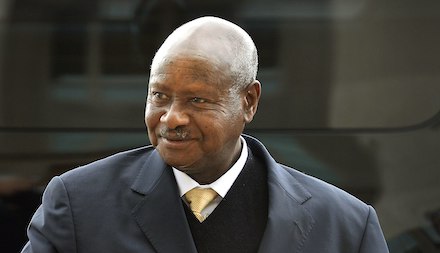Yoweri Museveni. Photo: Wikimedia Commons
The unprecedented cost of the 2021 elections will be a self-consuming fire that will extinguish Uganda’s ruling National Resistance Movement (NRM) dictatorship.
According to the Alliance for Campaign Finance Monitoring (ACFIM), the 2021 elections have been the most expensive in Uganda’s history. This, notwithstanding the substance that President Yoweri Museveni is estimated to have spent a minimum of $231 million (Shs773b) in the 2016 campaigns.
ACFIM said that contestants for Parliament in 2021 have, on average, spent between $137,000 (500 million shillings) to $274,000 (1 billion shillings). if we take the upper end cost estimate multiplied by the number of contestants for Parliament, the races may have cost $728 million. This, in the country where World Bank figures say the average annual income is under $800. The race for local government posts at the district level were just as costly.
The rise in expenditure came hand in glove with the 47% increase in the number of parliamentary candidates to 2,659 in the 2021 elections, up from from 1,747 in 2016. The country was awash with so much liquidity in the shape of bribes, handouts, and other forms of baksheesh which punctuate patronage politics. So, as economics dictates, there shall be inflation emanating from an economy flush with campaign money chasing the few goods produced in the context of Covid-19.
Inflation after an election is nothing new, but this time the effects will be something entirely different. In the dim light of a probable lockdown, most Ugandans will be limited in ways of making money to head off these effects. To be sure, a lockdown might be enforced with the express purpose of combating Covid-19.
Well, this is what the Museveni regime will have us believe. There are two reasons people do things. One, the express reason. Two, the real reason. The real reason for another lockdown will be to contain the hue and cry of a population which voted for change only to witness the interminable extension of NRM maladministration.
Then the NRM, being on the ropes, will come out swinging with a lockdown to match the social media shutdown and mainstream media blackout during the election. This, it hopes, will divert the probing light being shone on its continued inequities, but it won’t work.
Although a lockdown might diminish the earnings of Ugandans to a beggarly status, the government seems to be impervious to people’s suffering. Dr. Fred Muhumuza, an economist and lecturer at the School of Economics at Makerere University, says Uganda might not see so much growth in 2021. “If you leverage other economies, we might not see so much growth this particular year. The hardships will continue, especially regarding household incomes for some time,” he says.
With potentially runaway inflation and low aggregate demand reminiscent of Zimbabwe’s devastated economy, Ugandans will be left with nothing but their chains to lose. The government may extend the violence it inflicted upon innocents during a bloody election as Museveni attempts to rule for life. To make matter worse, this violence will have the shock value of long term effects which will rob the country’s economy of its monetary value and its ability to rise from the ashes.“The kind of politics that we are seeing, which we have not seen before, is marred with violence. The violence has gone down into communities which presents a likelihood of taking longer to solve,” Dr. Muhumuza says.
Such violence will beget more violence as government is not willing to address the reasons why Ugandans are seeking change over decline. “People are angry for jobs, opportunities, corona just made it worse,” Dr. Muhumuza says.
The NRM government will claim it has the antidote to these ills, as Uganda Revenue Authority (URA) has been reporting surpluses, especially in the last quarter of 2020. In their 2020 end of year message, URA indicated they had, by November 17, collected 973 billion shillings, which was a proportion of 74% of the official target and 64% of the operational target.
This shows that everything is rosy, right? Think again. Dr. Muhumuza says the surpluses are there because targets were revised in light of Covid-19. “The best would be gathering what we collected in the three quarters last year and what we have collected, if you look at such comparisons, you begin to see the shortfall,” he says.
With such chimerical revenue streams, the government will be forced to revert to deficit expenditure and increased taxes to stave off an impending economic meltdown. The national debt would balloon to proportions that will pop the bubble the NRM resides in. Household incomes shall vanish with a huge sucking sound.
In such a scenario, Ugandans will likely be forced to rise up. Even if that means death.
In the end, 45 million Ugandans—and counting—will outnumber the artillery that will be deployed to keep them quiet. President Museveni knows this and he also knows that change will swallow his regime whole. Yet he persists in the folly of clinging to an office whose trappings have left him in a web of his own greed.
In 1986, when Museveni seized power, only a few of us could see these benighted times on the horizon. Due to our collective blindness, these few were branded naysayers, Cassandras, and reactionaries.
They were told that a “fundamental change” would sweep their forebodings aside as a new day dawned in Uganda. It proved to be a false dawn and those reactionaries proved to be visionaries. Now, their presentiments are foreshadowing dark times ahead.
However, twilight implies dawn. So the Pearl of Africa shall sparkle again. It is only a matter of time.
Columnist Philip Matogo can be reached via [email protected]







